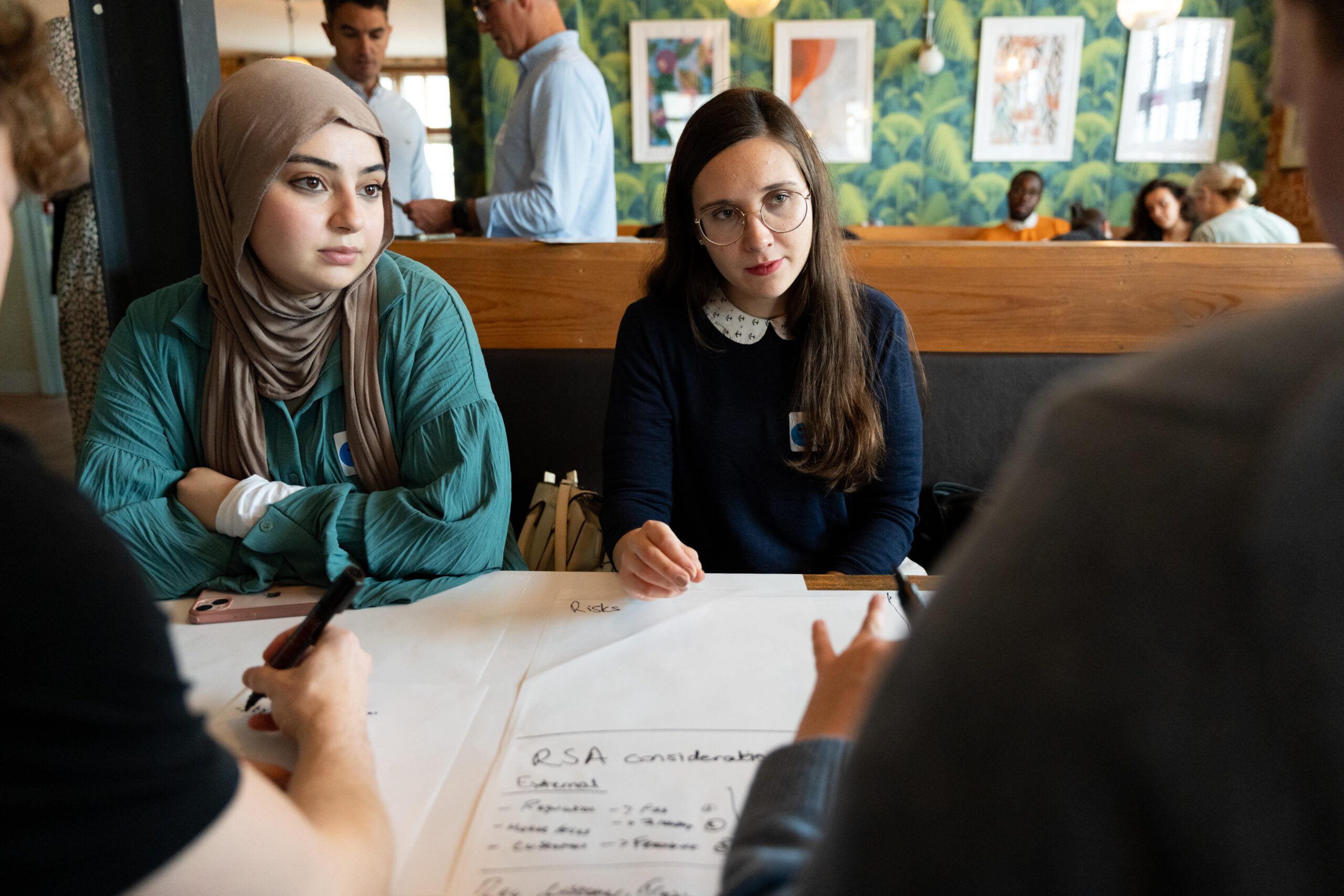
10 skills employers will need after COVID-19
The impact of coronavirus has changed the working world for everyone. And whilst we’re looking forward to our lives returning to some sense of ‘normal’ – there is much that has been forever altered.
In these challenging circumstances prompted by coronavirus, we’ve quickly adapted to new ways of working, embraced remote working and, in many cases, accelerated our digital transformation. Aligned with this shift, a recent Forbes article expects flexibility and tech savviness to soon be coveted skills after coronavirus.
As our workplaces change so do the in-demand skills that organisations will need for success. We explore what skills may be highly sought after in the post COVID-19 world.
1. Adaptability
Arguably, adaptability has been the most significant skill that almost everyone has had to cultivate over the past few months. Organisations’ services have now transitioned to virtual offerings and their people have moved from the office to their homes. We’ve all had to welcome uncertainty in order to create new ways of working in line with government guidelines to keep everyone safe.
Whilst this new chapter of our working world continues to evolve, talent who are flexible, adaptable and able to bounce back when faced with problems will be a valuable asset. This likely means being comfortable operating in an Agile environment, working to deliver change iteratively. An Agile team will be able to flex their approach and self-manage challenges. Grayce Analyst, Emma Hooker says, “My client uses Grayce Analysts because we’re flexible and malleable workers who can adapt to our environments and to different stakeholders.”
2. Digital literacy
Digital literacy is essential today. The emerging workforce has a lot to offer in this space as first-generation digital natives. Harnessing this talent and developing them is vital for organisations looking to maintain the pace of digital change we’ve seen during the pandemic.
Expertise in a particular software or programming language can be extremely beneficial, but as the half-life of a technical skill is currently two and a half years, it’s important to recognise that digital literacy requires continuous improvement to remain relevant. As we continue to embrace technology for everything from communications to contact-free services, the emerging workforce are well-equipped to help organisations embed new technologies into their operations.
3. Communication
Digital transformation involves the whole organisation. Most of us have experienced this first-hand over recent months. Communication is key to making real, lasting change. Grayce Digital Director, Lee Egerton says, “Digital transformation isn’t just about technology but about people and cultural change. Empowerment of individuals working within programmes is critical to their success.”
That’s why it’s vital to ensure your people have strong communication skills. From Managing Directors to CFOs, your team need to be able to explain complex processes to stakeholders across the business with ease and confidence. Grayce Analyst, Emily Harrison says, “Grayce Analysts are adaptable and communicative and we’re from a variety of academic backgrounds, meaning we’re able to offer a fresh and unique perspective in the workplace.”
4. Growth mindset
In-demand skills are changing all the time. So, it’s important to find talent with growth mindsets, who are committed to continuous learning and development throughout their careers. A curiosity and willingness to learn are essential skills that have likely helped many organisations pivot their offering during the pandemic. As digital and technology evolves, you need talent who are ready to evolve their skill set along with this.
5. Emotional intelligence
A key takeaway during the COVID-19 outbreak has been accepting your employees and colleagues as professionals - and as people. With much of the population dealing with grief, anxiety and loss, along with balancing work around home schooling, EQ has proved to be just as important as IQ.
Grayce Alumnus, Liam Pascoe says “Being driven and empathetic is really important. A lot of my role is understanding the pain points that people have and then working with them to try and make their jobs better, whilst serving the larger objectives of the project.” Wellbeing and mental health concerns have come to the forefront and talent who can interact with people in a compassionate, empathetic way will be essential going forward.
6. Critical thinking
Organisations have overcome a whole host of new challenges in recent months. The success here is down to critical thinking and decision making. Critical thinkers will identify, analyse and solve problems systematically. Grayce Analyst, Jack Phypers says, “There a lots of challenges coming up in the world, whether it be new technology or new rules and regulations coming from governments. Where I sit at the moment is looking at these challenges and figuring out how my client can best shape a proposition to address them.”
7. Resilience
We know this period of time has been a huge test of resilience for many organisations. The path to successful innovation inevitably has some missteps. Organisations need talent who can consistently come up with new ideas, as well as bounce back if they aren’t successful on the first try. Innovation is a learning experience for everyone. So, talent that can embrace feeling uncomfortable is essential. Resist fearful thinking to cultivate an environment where it’s okay to fail in order to allow resilient talent to add real value to the team. This year’s graduate cohort, for instance, will likely become some of the most resilient due to the unfavourable job market that they’re graduating into.
8. Creativity
Creativity is often assumed to only be a key skill for the likes of designers and writers. But a creative Data Analyst, for example, can create narratives and tell stories with data that translate their findings into a digestible format for a range of stakeholders. Grayce Analyst, Roisin Wherry says, “I enjoy telling stories with data and seeing an organisation change its way of working using technology to improve customer and staff experiences.”
Being creative means thinking outside of the box, going beyond traditional processes to imagine new solutions to organisations’ challenges. Most of us have had to think creatively during the pandemic to shape new ways to work effectively whilst at home or to pivot sales approaches to continue the success of your organisation. Creative thinkers will keep pushing your operations and projects forward by providing new insights and drawing inspiration from current digital trends.
9. Innovation
The speed of innovation and the worldwide scale demanded in response to this global pandemic is entirely new. Customer behaviour and demands are likely to look very different post COVID-19. So, having talent with an innovative approach will enable you to stay one step ahead. Grayce Analyst, Akbar Hussain says “One of the reasons that my client takes on Grayce Analysts is because we’re always willing to dive in the deep end and be an advocate for innovation.” Critical thinkers armed with curiosity will help to unravel existing problems and imagine new ways of working.
Innovation in any industry is an ongoing process that is well supported by Agile methodology. This means delivering change incrementally and assessing what’s working and what isn’t. Then adjusting the plan as you go. Talent with good knowledge of Agile ways of working are well-equipped to overhaul the traditional methods that could be holding organisations back from innovating.
10. Collaboration
Only months ago, leading retailers were in fierce competition. And now, they’re working together. Iceland Managing Director, Richard Walker says, “Retailers who are normally the deadliest of competitors have started talking freely to each other, sharing information and ideas.”
No one can deliver successful change on their own. And even an excellent idea cannot be executed without a strong team. Talent that take a collaborative approach will be able to communicate their ideas to a range of stakeholders, ensuring the whole team is onboard with transformation projects.
Grayce cultivates all of these skills in the emerging workforce on our graduate Development Programme. We are continuously evolving our programme to shape well-rounded change professionals with the in-demand skills of the day.
We are currently working 100% remotely, supporting clients as they deliver transformation programmes. We're providing high-quality Business Analysis. Project Management and Data Analysis support during COVID-19. We can onboard Analysts remotely in an efficient two-day mobilisation, whilst providing one-to-one support to both Analysts and clients through our Delivery Managers.
Grayce have been partnered with public and private sector organisations since 2013. Our growing Analyst Community are supporting cutting-edge change programmes in financial services, insurance, retail, healthcare, legal services, pharmaceuticals – and much more. Working on industry-leading projects nationwide, our Analysts add value from day one and bring the capability and resilience that’s vital in the fast-paced world of transformation.
Find out more about how we're supporting organisations nationwide to innovate and succeed




